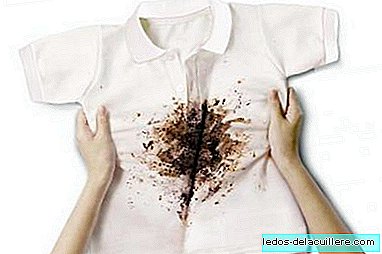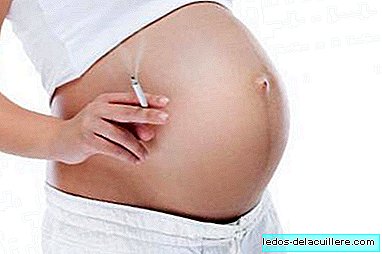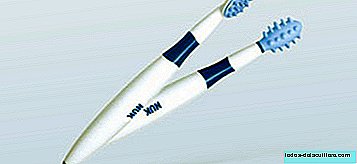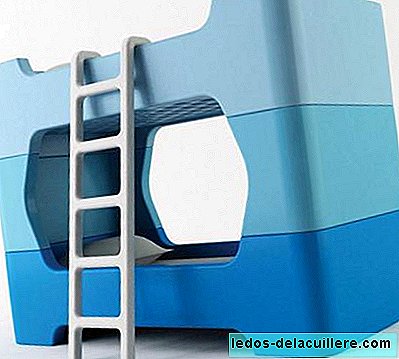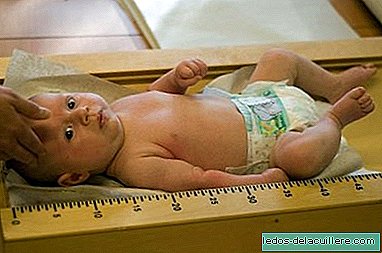
In 1981 the WHO (World Health Organization) decided to write the International Code of Breast Milk Substitutes to ensure the interests of mothers and to avoid the use of deceptive and manipulative advertising by companies producing artificial milk.
Since then, the Code has been established in different countries with greater or lesser prohibitions. In Spain, for example, it is regulated by ROYAL DECREE 867/2008, whereby it is prohibited to advertise the so-called "infant formula", which is the starter milk (or type 1), but not of the milk of continued (or type 2).
Nor is it possible for manufacturers or distributors of artificial milk to reach the general public, whether pregnant women, mothers or relatives, products indirectly through health services or health personnel, that is, neither pediatricians nor nurses should give artificial milk samples to anyone and, nevertheless, it is usual to enter a consultation and see posters, calendars (not allowed) and even samples of artificial milk in view of any person.
The most curious thing is that many of the professionals are unaware that it is legally prohibited to deliver samples. A mother once explained to me that when discussing it with her nurse, she told him that “if the manufacturers bring them to us, it is because we can give them”.
Studies have been carried out in this regard, assessing health centers and it has been observed that Only in 14.9% there are rules to avoid the visible presence of brochures, posters or samples of formula milk.
Why giving artificial milk samples is not allowed
We all know that breast milk is the ideal diet for a baby. Various studies show that the higher the breastfeeding rates, the less health problems children suffer. This translates into fewer medications, less hospital admissions and fewer work absences from fathers and mothers, as well as better overall development of babies and children.

The success of breastfeeding requires time, patience and confidence on the part of the mother (in addition to support from experts if something fails). If there is a lack of confidence or if patience is exhausted in the face of possible problems, solutions should be sought, which usually also require time, patience and trust. In a world where quick and almost magical solutions prevail, artificial milk appears as an easy resource on many occasions, not only coming from the mouths of family members ("give a bottle, that this child is starving"), but also from the world of health ("can not stand three hours, give a bottle"), basically, because it is the simplest and fastest solution that exists: A bottle is prepared in minutes and getting a successful breastfeeding takes days and sometimes weeks.
Health teams should support breastfeeding in an active way. This does not mean that they should try to convince women who want to give the bottle to give breast milk, but to help mothers who want to breastfeed to get it. There are many, too many, occasions when a mother enters a consultation with a breastfeeding problem and leaves with the indication of giving bottles as the first and only solution.
If, in addition to this, you go out with the milk samples to start giving at home, it is likely that this is the beginning of the end of breastfeeding, since when a baby grows and needs more milk, it is much easier to add 30 ml to a bottle that offer breast almost constant demand for 24-48 hours to increase milk production (and then 30 more, and 30 more, until one day breastfeeding ceases to make sense).
Why it is not allowed to have artificial milk samples in sight
It is not allowed to have samples of artificial milk in sight, or posters, or calendars because the mothers trust what comes from the pediatrician or the nurse (there are those who believe even what they say on TV: “It is very good, what advertise on TV ... ").

When I ask the mothers who give artificial milk what milk they are giving to their babies, most of them tell me “I give them milk X, it is what they gave them in the hospital, so I suppose it will be good”. We all know that milks are similar and that in practice it does not matter what artificial milk babies take, however mothers trust a brand because “if they give it to the hospital, it is because it is good, but the best”.
This makes it easy to realize that if a mother stops to observe the furniture and decoration of a pediatric practice You may think that the exposed milk is better than others or that the pediatrician sees it as ideal to feed a baby with artificial breastfeeding or that it is considered indifferent to feed a baby with natural breastfeeding than with artificial milk: “Look, you're right, I also think my son is hungry. The other day I saw in the pediatrician's office that they had milk X. If they have it for something it will be. Right now I send my husband to buy it. ”
A couple of examples
I cannot give many examples because I have not been in too many health centers observing this fact, however I can speak calmly of two of them. One is the primary care center where I work and the other is the center where my children's pediatrician is.
In both we can see posters, calendars and boxes with samples of artificial milk in sight of any mother (except in my consultation) and in both it is possible to see at some time a mother leaving the consultation with a sample.
I know that my center sounds like "at the house of a blacksmith stick spoon", but it is. The first time I commented that it was illegal to have artificial milk samples in sight and give them to mothers, many were literally hallucinated. They did not know. The second time I mentioned it, many expressed that they already knew it. However, three years later, the samples are still there, in view of others and the representatives of artificial milk continue to bring bags loaded with samples.
And in your health center, Are there samples of artificial milk?
Photos | Maessive, thesoftlanding, Inferis on Flickr
In Babies and more | Breastfeeding or artificial milk: The confusion of new mothers, Why very few babies take exclusive breastfeeding until six months, My experience with pediatricians little friends of breastfeeding and breastfeeding (I) and (II)


